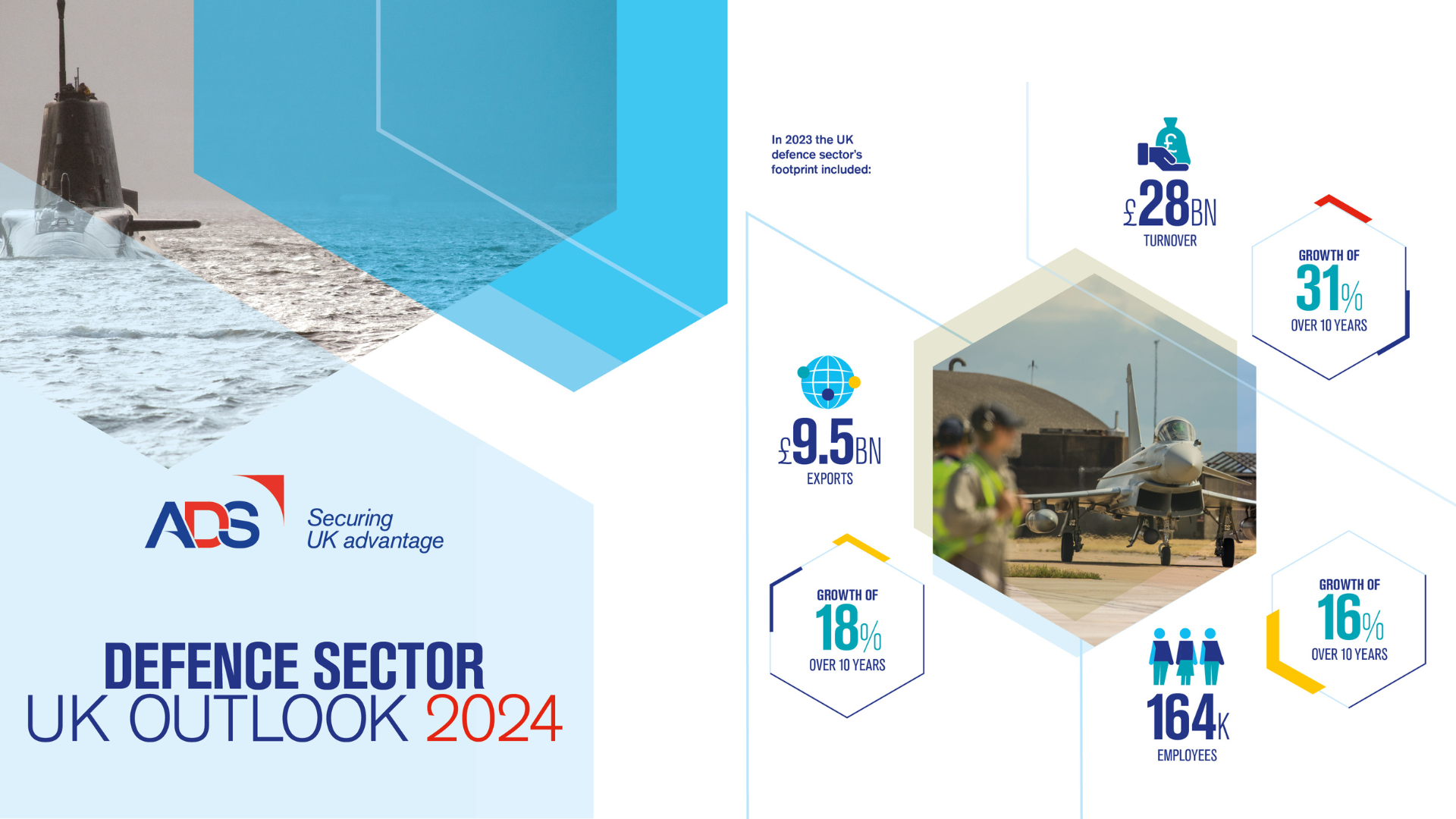
Today we launch the UK Defence Sector Outlook 2024 offering our annual guide to the sector.
This report sets out the continued strength and value of the UK’s defence sector. While rising budgets across the globe offer opportunities, our success both domestically and abroad will be shaped by the UK’s ability to deepen international relationships, to capitalise on the deterrence effect of a strong industrial base, and collaboration between industry and government to exploit rapid technological innovation.
UK advantage in the defence sector requires a commitment to…
Forging a Strategic Partnership
In the face of an increasingly volatile world, the Armed Forces must work closely with industry to strengthen national resilience, foster innovation, and deliver capabilities at pace. The requirement for increased defence industrial capacity has reinforced the need to build resilience across supply chains.
Events in Ukraine have highlighted the incredibly rapid pace of acquisition and innovation needed to maintain military advantage. The Integrated Procurement Model recognises the need for rapid procurement in the aim to embed spiral development by default into procurement to enable delivery at pace. Working to embed these practices will enable the adoption of new technologies, as well as the integration of defence capabilities as quickly as possible. Breaking down barriers for companies operating in the defence space is imperative to the sector’s growth, especially given the increasingly hybrid and blended character of warfare.
Underpinning this is the fact that domestic sales alone are not enough to support the UK defence sector. Increasing the level of UK exports must be seen as a strategic priority to ensure domestic industrial strength and drive international collaboration. To achieve this, a new approach to procurement that places a premium on exportable designs is needed, inspired by the way the UK now prioritises social value in procurement.
Forging Deterrence
The convergence of civilian and military technology, particularly in drone warfare, underscores the opportunities for the UK defence sector. By pairing commercial and traditional defence capabilities, we can enhance deterrence. Greater collaboration, cross-sector fertilisation, and technology exploitation is needed to maintain the UK’s technological edge. Additionally, there is significant growth potential for UK industry through engagement with non-traditional defence players, particular in the fi eld of Artificial Intelligence (AI). The UK’s AI ecosystem’s expertise is rich across academia, SMEs and the existing defence industrial chain.
As seen in Ukraine, air defence is increasingly vital for the protection of critical national infrastructure (CNI). The evolving threat landscape, including the incorporation of civilian technologies, has made delivering Integrated Air Missile Defence (IAMD) more technically difficult. The scale of the challenge means that credible IAMD for most European states can only be delivered through the integration and creation of a layered capability to counter potential threats ranging from sophisticated missiles to mass-produced drones. The UK has the opportunity to play a leading role in providing this capability and ensuring deterrence.
Forging International Collaboration
Rising geopolitical tensions require the UK to adapt rapidly to an ever-evolving threat environment. Both NATO and the EU have recognised the importance of working in partnership to build the defence industrial base, with NATO’s Defence Production Action Plan providing an essential framework. UK industry must work with NATO allies to create a more resilient defence supply chain, with an increased production capacity.
The publication of the European Defence Industrial Strategy indicates the EU’s ambitions to build on EU defence industrial policy and create a robust European defence technological and industrial base. This underlines the need for a coherent UK response to promote enhanced UK-EU defence cooperation through a new UK-EU defence treaty, to create new opportunities for mutually beneficial collaboration and to provide a collective European response to stark geopolitical challenges.
Pillar Two of AUKUS has the potential to provide exciting opportunities for the UK defence sector in the development of advanced capabilities, but this calls for focus and leadership to create a favourable enabling environment for UK industry. Identifying the areas where the UK can take the lead, and ensuring the successful delivery of relevant export controls are vital for the UK defence sector to capitalise on the opportunities AUKUS can offer.
View full publication for the ADSDefence Outlook 2024 below:
Fullscreen Mode




